Editor's Picks
Open Access
Original Article
Digital health and mobile health: a bibliometric analysis of the 100 most cited papers and their contributing authors
Aim:
This study aimed to identify and analyze the top 100 most cited digital health and mobile health (m-health) publications. It could aid researchers in the identification of promising new research avenues, additionally supporting the establishment of international scientific collaboration between interdisciplinary research groups with demonstrated achievements in the area of interest.
Methods:
On 30th August, 2023, the Web of Science Core Collection (WOSCC) electronic database was queried to identify the top 100 most cited digital health papers with a comprehensive search string. From the initial search, 106 papers were identified. After screening for relevance, six papers were excluded, resulting in the final list of the top 100 papers. The basic bibliographic data was directly extracted from WOSCC using its “Analyze” and “Create Citation Report” functions. The complete records of the top 100 papers were downloaded and imported into a bibliometric software called VOSviewer (version 1.6.19) to generate an author keyword map and author collaboration map.
Results:
The top 100 papers on digital health received a total of 49,653 citations. Over half of them (n = 55) were published during 2013–2017. Among these 100 papers, 59 were original articles, 36 were reviews, 4 were editorial materials, and 1 was a proceeding paper. All papers were written in English. The University of London and the University of California system were the most represented affiliations. The USA and the UK were the most represented countries. The Journal of Medical Internet Research was the most represented journal. Several diseases and health conditions were identified as a focus of these works, including anxiety, depression, diabetes mellitus, cardiovascular diseases, and coronavirus disease 2019 (COVID-19).
Conclusions:
The findings underscore key areas of focus in the field and prominent contributors, providing a roadmap for future research in digital and m-health.
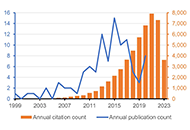
Open Access
Original Article
Use of responsible artificial intelligence to predict health insurance claims in the USA using machine learning algorithms
Aim:
This study investigates the potential of artificial intelligence (AI) in revolutionizing healthcare insurance claim processing in the USA. It aims to determine the most effective machine learning (ML) model for predicting health insurance claims, leading to cost savings for insurance companies.
Methods:
Six ML algorithms were used to predict health insurance claims, and their performance was evaluated using various metrics. The algorithms examined include support vector machine (SVM), decision tree (DT), random forest (RF), linear regression (LR), extreme gradient boosting (XGBoost), and k-nearest neighbors (KNN). The research involves a performance assessment that encompasses key metrics. Additionally, a feature importance analysis is conducted to illuminate the critical variables that exert influence on the prediction of insurance claims.
Results:
The findings demonstrate that the XGBoost and RF models outperformed the other algorithms, displaying the highest R-squared values of 79% and 77% and the lowest prediction errors. The feature importance analysis underscores the pivotal role of variables such as smoking habits, body mass index (BMI), and blood pressure levels in the domain of insurance claim prediction. These results emphasize the degree to which these variables should be included in the formulation of insurance policies and pricing strategies.
Conclusions:
This study supports the transformative potential of AI, with specific emphasis on the XGBoost model, in extending the precision and efficiency of healthcare insurance claim processing. The identification of key variables and the mitigation of prediction errors not only signal the potential for substantial cost savings but also affirm the potential to integrate AI into healthcare insurance processes. This research supports the value of the utilization of AI as an emerging tool for process optimization and data-informed decision-making within the healthcare insurance domain.
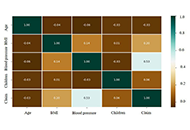
Open Access
Perspective
Turbulence at Twitter with leadership change: implications for health research and science communication
Twitter has been an invaluable social media platform for scientists to share research and host discourse among academics and the public. The change of ownership at Twitter has changed how scientists interact with the platform and has led some to worry about its future. This article discusses the current changes at Twitter and what implications these may have for future health research and communication.
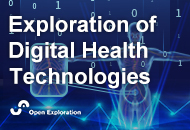
Articles
Latest
Most Viewed
Most Downloaded
Most Cited
Open Access
Systematic Review
Digital innovation in sepsis-related healthcare: a scoping review of mobile application literature
Khalia Ackermann ... Ling Li
Published: February 13, 2026 Explor Digit Health Technol. 2026;4:101186
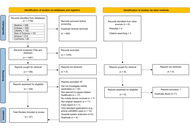
Open Access
Perspective
Harmonizing multicenter quantitative imaging data: sources of variability, statistical solutions, and practical workflows in CT and MRI
Nurmakhan Zholshybek, Lazzat Bastarbekova
Published: February 10, 2026 Explor Digit Health Technol. 2026;4:101185
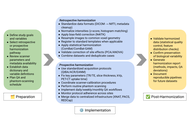
Open Access
Original Article
Open-source light calibration system for hyperbilirubinemia phototherapy treatments
Joshua T.M. Givans ... Joshua M. Pearce
Published: February 08, 2026 Explor Digit Health Technol. 2026;4:101184

Open Access
Original Article
#YouthMentalHealth: hashtag analysis of global trends, stakeholder engagement, and impact on X platform (formerly known as Twitter)
Mehr Muhammad Adeel Riaz ... Faisal A. Nawaz
Published: January 20, 2026 Explor Digit Health Technol. 2026;4:101183
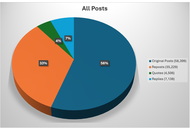
Open Access
Systematic Review
Thermography and technology: transforming health insurance with smart diagnostics and fraud prevention
Enzo Montresol Faversani
Published: January 19, 2026 Explor Digit Health Technol. 2026;4:101182
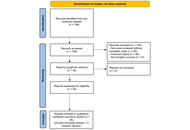
Open Access
Perspective
Towards the future of personalized medicine: digital twin technology
Keren Mazuz, Seema Biswas
Published: January 14, 2026 Explor Digit Health Technol. 2026;4:101181
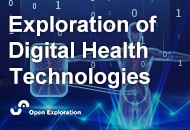
Open Access
Original Article
Use of responsible artificial intelligence to predict health insurance claims in the USA using machine learning algorithms
Ashrafe Alam, Victor R. Prybutok
Published: February 28, 2024 Explor Digit Health Technol. 2024;2:30–45
This article belongs to the special issue Data-informed Decision Making in Healthcare

Open Access
Original Article
Digital health and mobile health: a bibliometric analysis of the 100 most cited papers and their contributing authors
Andy Wai Kan Yeung ... Atanas G. Atanasov
Published: April 22, 2024 Explor Digit Health Technol. 2024;2:86–100

Open Access
Systematic Review
Do you need a blockchain in healthcare data sharing? A tertiary review
Kun Li ... Visara Urovi
Published: June 14, 2024 Explor Digit Health Technol. 2024;2:101–123
This article belongs to the special issue Data-informed Decision Making in Healthcare
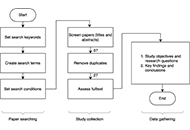
Open Access
Perspective
Advancing digital health in Yemen: challenges, opportunities, and way forward
Omar Abdulkarim Saeed Alhammadi ... Olalekan John Okesanya
Published: November 25, 2024 Explor Digit Health Technol. 2024;2:369–386
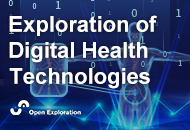
Open Access
Perspective
Turbulence at Twitter with leadership change: implications for health research and science communication
Ronan Lordan, Hari Prasad Devkota
Published: November 01, 2023 Explor Digit Health Technol. 2023;1:4–10
This article belongs to the special issue Social Media Applications in Biomedical Research

Open Access
Perspective
Science communication on X (formerly Twitter): A picture is worth a thousand characters?
Himel Mondal ... Harald Willschke
Published: November 28, 2023 Explor Digit Health Technol. 2023;1:28–34
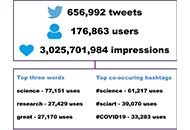
Open Access
Original Article
Use of responsible artificial intelligence to predict health insurance claims in the USA using machine learning algorithms
Ashrafe Alam, Victor R. Prybutok
Published: February 28, 2024 Explor Digit Health Technol. 2024;2:30–45
This article belongs to the special issue Data-informed Decision Making in Healthcare

Open Access
Original Article
Digital health and mobile health: a bibliometric analysis of the 100 most cited papers and their contributing authors
Andy Wai Kan Yeung ... Atanas G. Atanasov
Published: April 22, 2024 Explor Digit Health Technol. 2024;2:86–100

Open Access
Perspective
Advancing digital health in Yemen: challenges, opportunities, and way forward
Omar Abdulkarim Saeed Alhammadi ... Olalekan John Okesanya
Published: November 25, 2024 Explor Digit Health Technol. 2024;2:369–386

Open Access
Perspective
Turbulence at Twitter with leadership change: implications for health research and science communication
Ronan Lordan, Hari Prasad Devkota
Published: November 01, 2023 Explor Digit Health Technol. 2023;1:4–10
This article belongs to the special issue Social Media Applications in Biomedical Research

Open Access
Systematic Review
Do you need a blockchain in healthcare data sharing? A tertiary review
Kun Li ... Visara Urovi
Published: June 14, 2024 Explor Digit Health Technol. 2024;2:101–123
This article belongs to the special issue Data-informed Decision Making in Healthcare

Open Access
Letter to the Editor
Warning: Artificial intelligence chatbots can generate inaccurate medical and scientific information and references
Catherine L. Clelland ... James D. Clelland
Published: January 10, 2024 Explor Digit Health Technol. 2024;2:1–6
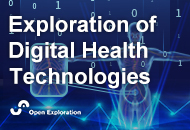
Open Access
Perspective
Turbulence at Twitter with leadership change: implications for health research and science communication
Ronan Lordan, Hari Prasad Devkota
Published: November 01, 2023 Explor Digit Health Technol. 2023;1:4–10
This article belongs to the special issue Social Media Applications in Biomedical Research

Open Access
Letter to the Editor
Harnessing the untapped potential of digital twin technology in digital public health interventions
Salman Khan ... ArunSundar MohanaSundaram
Published: November 01, 2023 Explor Digit Health Technol. 2023;1:11–16
This article belongs to the special issue Social Media Applications in Biomedical Research
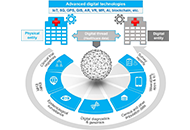
Open Access
Original Article
Use of responsible artificial intelligence to predict health insurance claims in the USA using machine learning algorithms
Ashrafe Alam, Victor R. Prybutok
Published: February 28, 2024 Explor Digit Health Technol. 2024;2:30–45
This article belongs to the special issue Data-informed Decision Making in Healthcare

Open Access
Systematic Review
Do you need a blockchain in healthcare data sharing? A tertiary review
Kun Li ... Visara Urovi
Published: June 14, 2024 Explor Digit Health Technol. 2024;2:101–123
This article belongs to the special issue Data-informed Decision Making in Healthcare

Open Access
Original Article
Digital health and mobile health: a bibliometric analysis of the 100 most cited papers and their contributing authors
Andy Wai Kan Yeung ... Atanas G. Atanasov
Published: April 22, 2024 Explor Digit Health Technol. 2024;2:86–100

Open Access
Original Article
The power of #physiotherapy: a social media hashtag investigation on X (formerly Twitter)
Himel Mondal ... Atanas G. Atanasov
Published: June 24, 2024 Explor Digit Health Technol. 2024;2:135–144
This article belongs to the special issue Social Media Applications in Biomedical Research
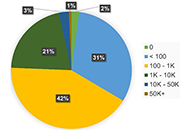
Special Issues
Ongoing Special lssues
Completed Special lssues
Expert Opinions on Digital Health Innovations
Guest Editor: Marco Tatullo
Submission Deadline: May 31, 2026
Published Articles: 1
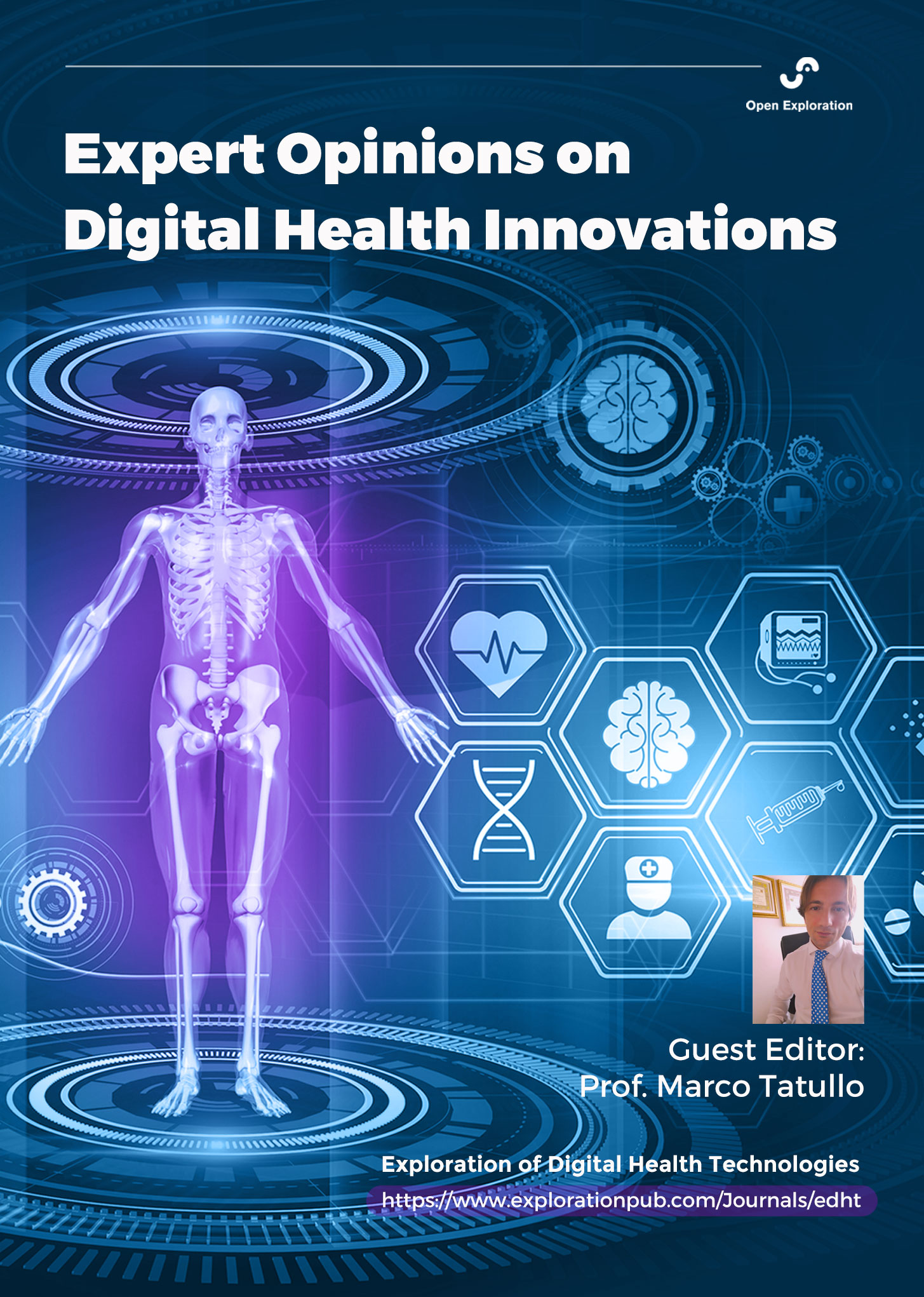
Digital Health Technologies for the Early Detection of Oral Cancer
Guest Editor: Saman Warnakulasuriya
Submission Deadline: August 31, 2025
Published Articles: 10
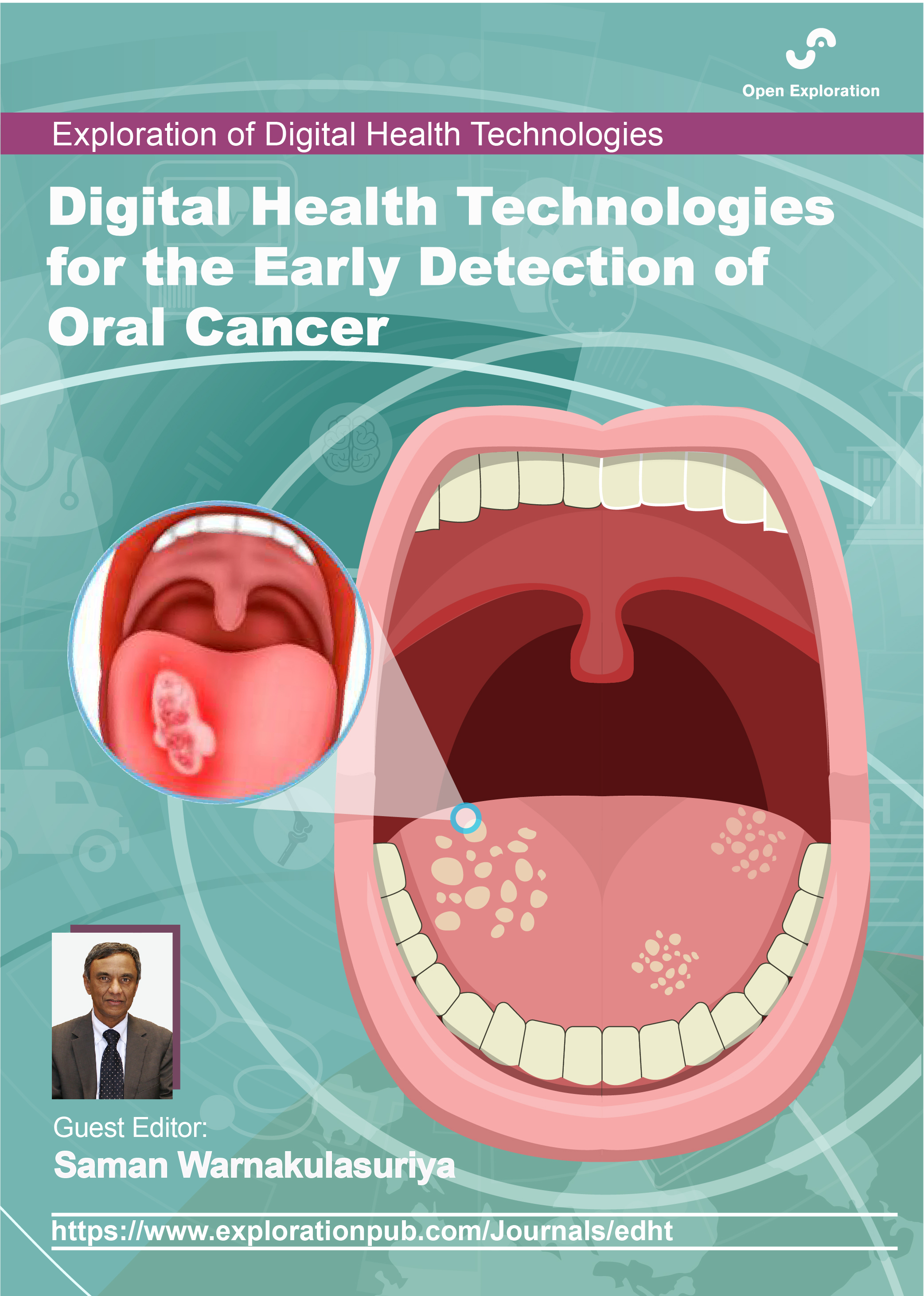
Digital Health Innovations in the Battle Against Psychological Problems: Progress, Hurdles, and Prospects
Guest Editors: Pasquale Caponnetto; Mirko Casu
Submission Deadline: August 31, 2025
Published Articles: 11
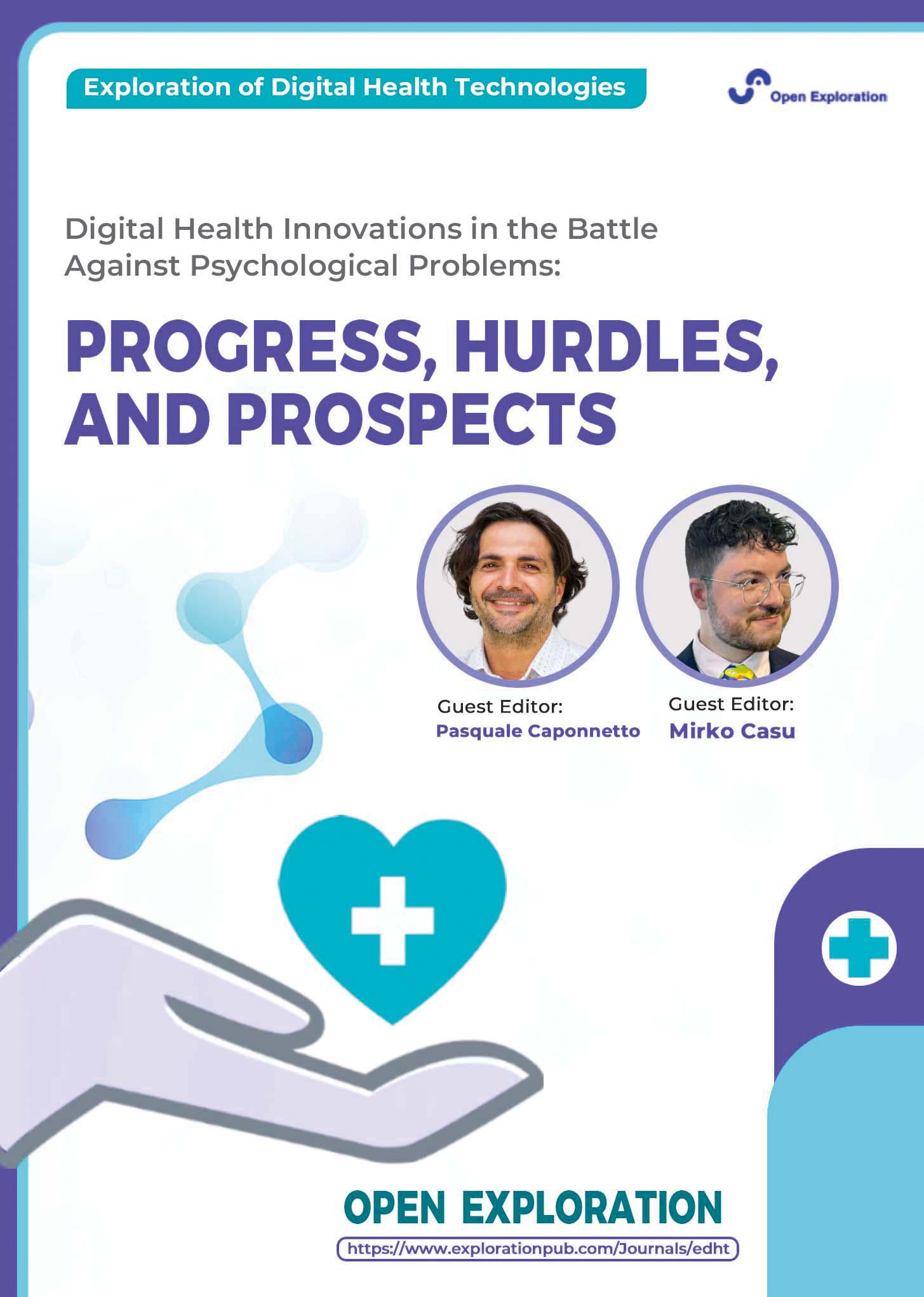
Deep Learning Methods and Applications for Biomedical Imaging
Guest Editor: Robertas Damaševičius
Submission Deadline: May 31, 2026
Published Articles: 3
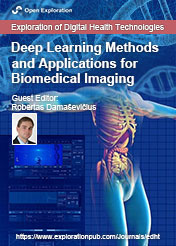
Telepsychiatry in Low-and Middle-income Countries: an Update
Guest Editor: Subho Chakrabarti
Submission Deadline: May 31, 2026
Published Articles: 3
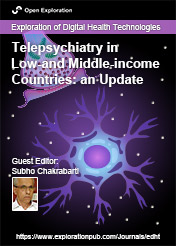
Data-informed Decision Making in Healthcare
Guest Editor: Sil Aarts
Submission Deadline: March 31, 2026
Published Articles: 6
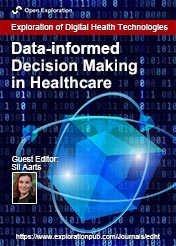
Cancer Diagnosis in the Digital Age
Guest Editor: Mohammad Reza Saeb
Submission Deadline: May 31, 2026
Published Articles: 2
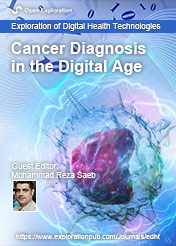
Wearable Technologies and Application of Machine Learning in Healthcare
Guest Editor: Shariful Islam
Submission Deadline: May 31, 2026
Published Articles: 3
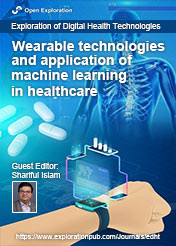
Biosensors for Bioactive Molecules
Guest Editors: J. G. Manjunatha; Chaudhery Mustansar Hussain
Submission Deadline: May 31, 2026
Published Articles: 2
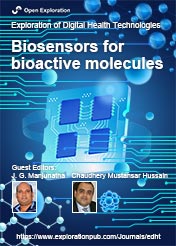
Social Media Applications in Biomedical Research
Guest Editor: Devesh Tewari
Submission Deadline: May 31, 2025
Published Articles: 7
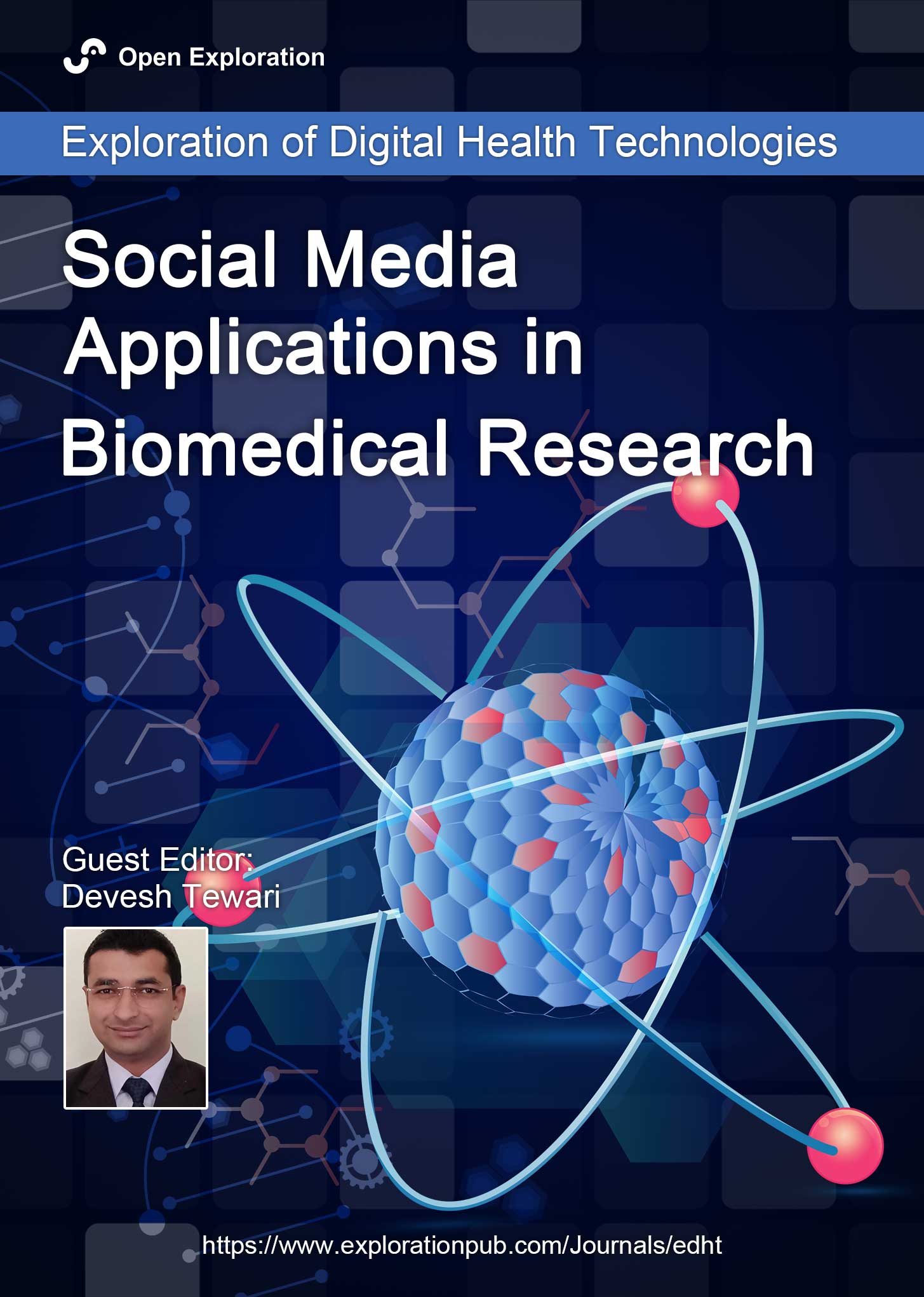
Journal Information
Journal Indexing
Journal Metrics









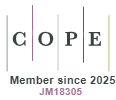


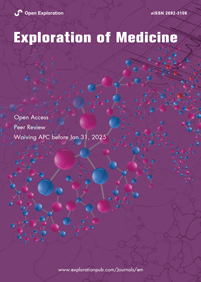
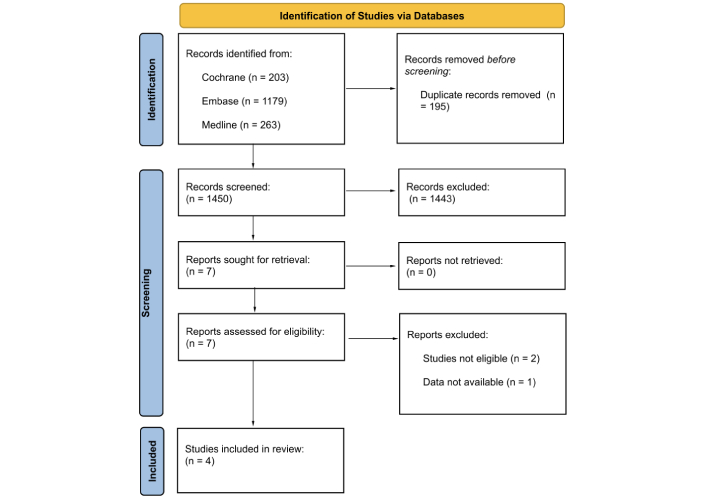 Title: Unravelling the interplaybetween #Harmattan wind andbaroreflex functions: implicationon environmental health andcardiovascular #pathophys
Title: Unravelling the interplaybetween #Harmattan wind andbaroreflex functions: implicationon environmental health andcardiovascular #pathophys


